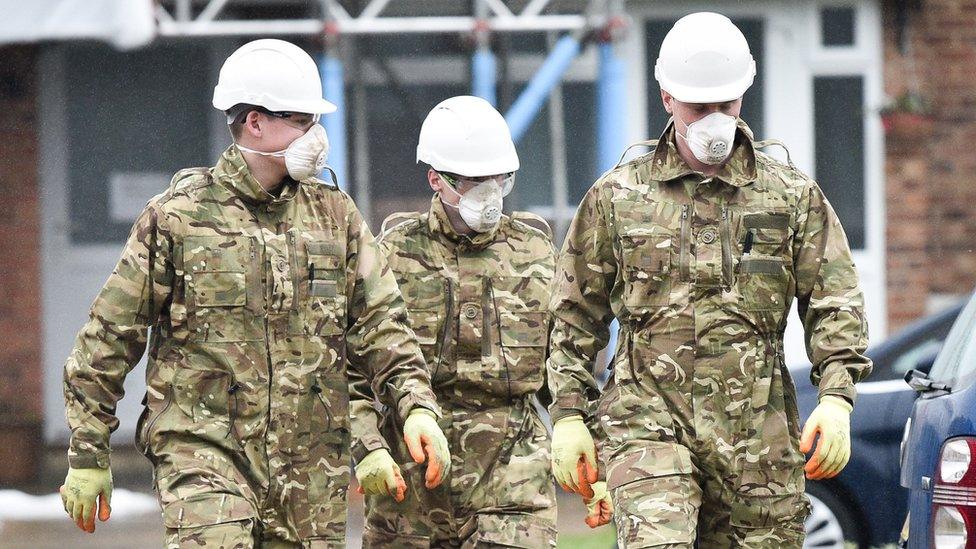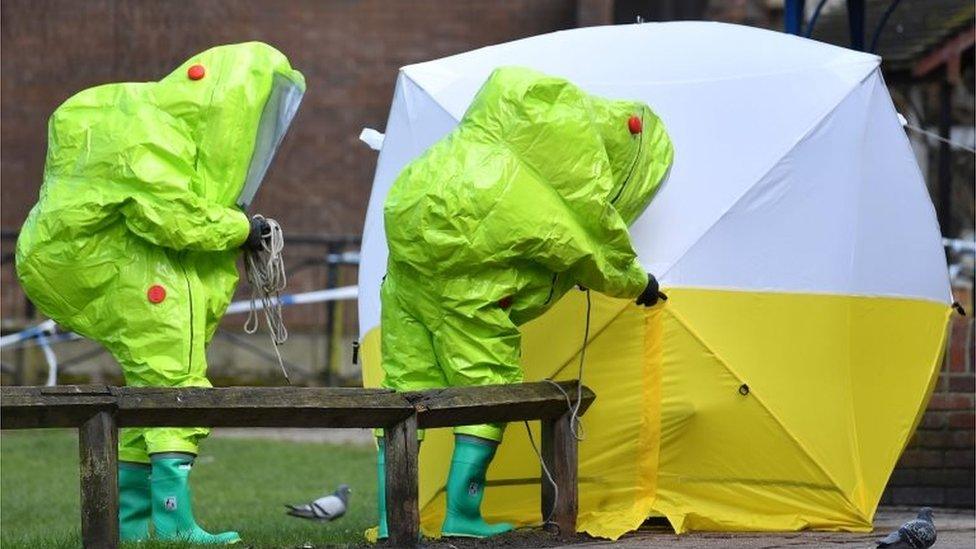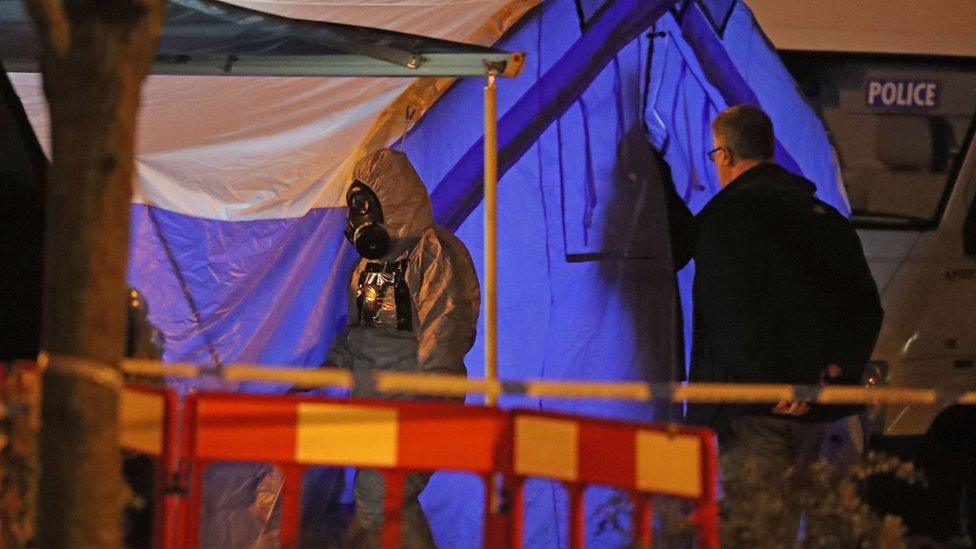Salisbury attack 'evidence' of Russian weapon stockpile
- Published

The Salisbury attack demonstrated that Russia continues to research, manufacture and stockpile chemical weapons, US state department officials have told BBC Newsnight.
If true, Russia would be in violation of one of the major post-Cold War arms control treaties.
This accusation opens the possibility that the entire system of treaties and inspections designed to prevent the use of such poisons could become defunct.
Now the question of further US sanctions - in order to punish this alleged breach of the 1992 Chemical Weapons Convention - is causing heated debate within Washington.
Weapons 'not declared'
In September 2017 the international watchdog the Organisation for the Prohibition of Chemical Weapons declared that Russia had successfully completed the destruction of its arsenal, external of these toxic agents, and indeed the Kremlin has reminded us of this many times since Salisbury.
But Western diplomats and intelligence officials allege that, on the contrary, the attack aimed at Sergei Skripal a year ago has exposed systematic attempts to cheat on the convention as well as deceive the international community.
"The use of an unscheduled nerve agent in Salisbury has made it extraordinarily clear that Russia only eliminated its declared chemical weapons stockpile," a US state department official told Newsnight.
"(It) is further evidence that Russia has not declared all its chemical weapons production facilities, its chemical weapons development facilities, and its chemical weapons stockpiles," they added.
The UK says officers from the GRU, Russian military intelligence, smeared a liquid nerve agent on the door handle of Mr Skripal's house in Salisbury.
The poison - one of a family developed in the former Soviet Union called Novichok - was, Western officials believe, of relatively recent production, forming part of a hidden or "undeclared" stock.
Last August, under a 1991 US law, Washington began taking action against Russia for Salisbury with restrictions on certain US exports. Moscow was given 90 days to comply with US requests including opening their chemical weapons facilities for inspection, but failed to do so by the November deadline.
The Chemical and Biological Weapons Control and Elimination Act now obliges the US government to take further measures against Russia - steps that could include everything from bans on oil imports and banking controls, to a complete halt to airline services between the two countries.
The US has hesitated to impose such draconian sanctions, because "we must carefully consider the impact that sanctions will have on US national security interests", a state department official explained, adding "since the second round also involves selecting measures from a larger list of possible sanctions, we must also weigh the relative value of each of the sanctions".
The US law though, critically, does not impose a deadline on the Trump administration for the imposition of such sanctions.
Inevitably, there are some voices in Washington who do not want a major escalation of such measures against Russia at this time. Some others too do not want to highlight the failure of the Chemical Weapons Convention, feeling it still provides a useful instrument against countries trying to field such poisons.
You can watch Newsnight on BBC 2 weekdays 22:30 or on iPlayer. Subscribe to the programme on YouTube, external or follow them on Twitter, external.
- Published4 March 2019

- Published8 October 2018
